"Jobs of Coffee"-The Legend of Howard Schultz
Professional coffee knowledge exchange more coffee bean information please follow the coffee workshop (Wechat official account cafe_style)
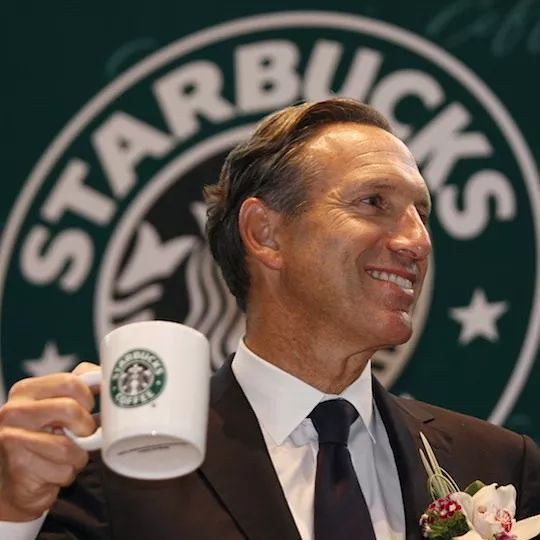
He is called the "Jobs of the coffee industry" because in his 36 years at the helm of Starbucks, the way we drink coffee has completely changed all over the world, including you and me.
But just last week, Howard Schultz announced that he would step down as CEO of Starbucks on June 26 to become honorary chairman.
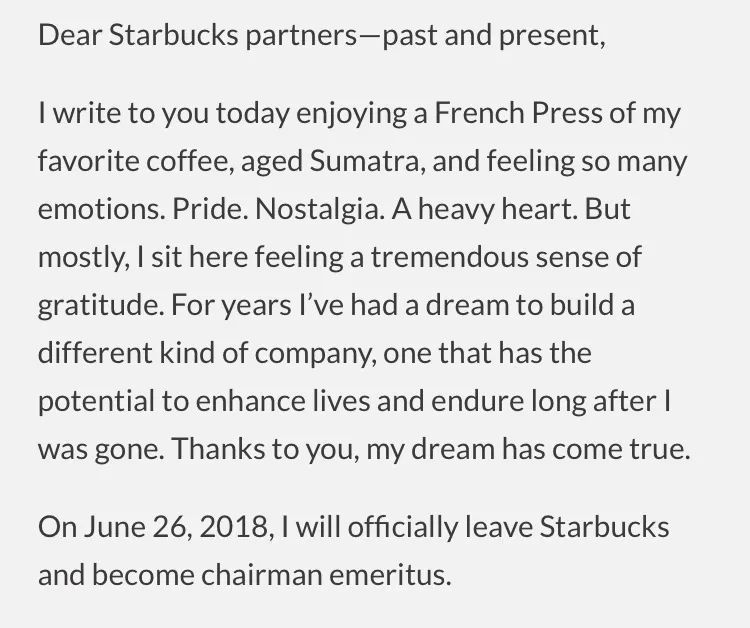
A letter that Howard wrote to employees on Starbucks' website.
There is also news that maybe Howard's goal is the 2020 US election, which sounds like another mainstream story from businessman to politics. will Howard become another example of "businessmen who don't want to be president are not a good CEO?"
But if you know where Howard came from and what Howard means to Starbucks, you may be able to find that it's not that simple.
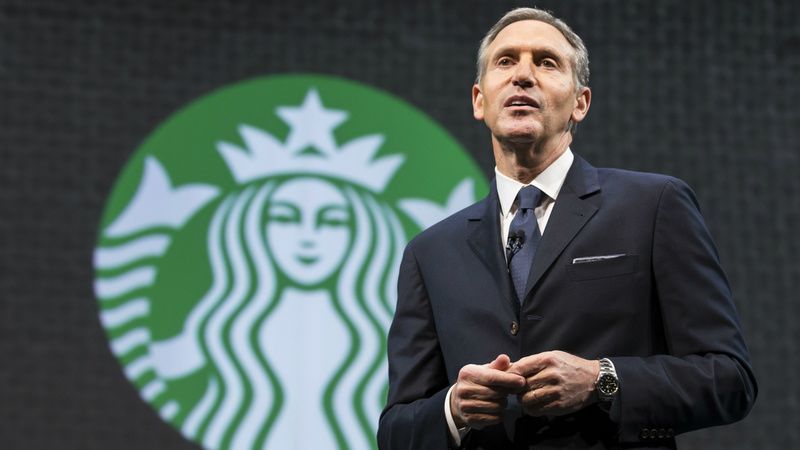
For people who like coffee and Starbucks, it was Howard who changed the way people drink coffee, turned coffee shops into a large-scale and global business model, and made Starbucks the representative of the "second coffee wave." it also makes Starbucks a "third space" in the minds of countless office workers around the world besides home and office.
Since its listing on Nasdaq in 1992, Starbucks now has a market capitalization of $78 billion and has more than 28000 stores around the world.
In 2017, Starbucks became the second largest restaurant brand by sales in the United States after McDonald's.
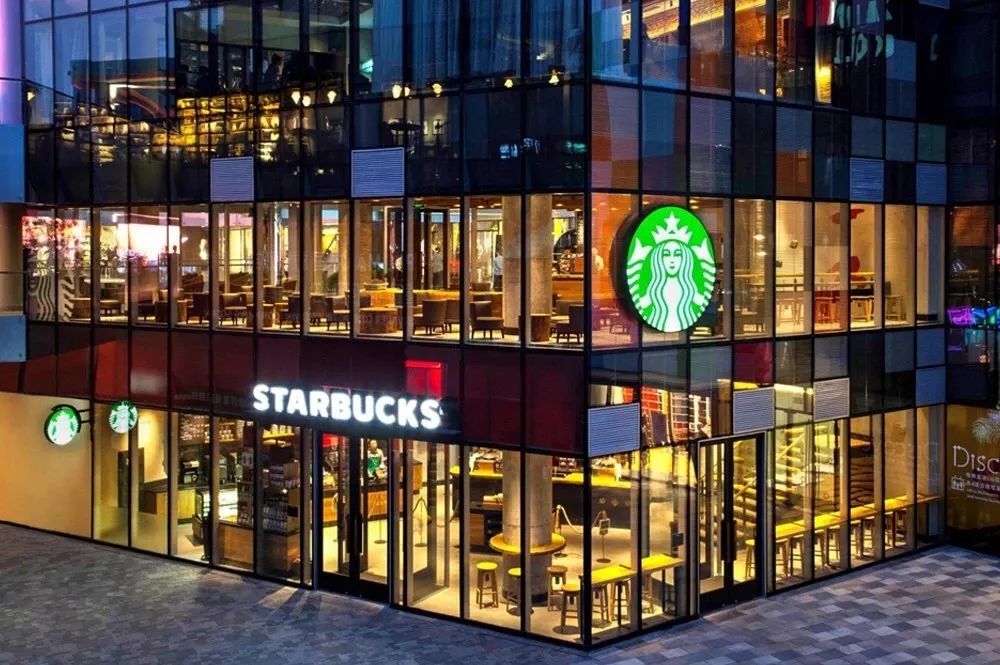
If you look at these figures, you might think that Howard is an excellent graduate of MBA College, a prestigious university, with a glittering resume and even a huge family support.
However, it is not.
/ the fragmentation and counterattack of the American Dream /
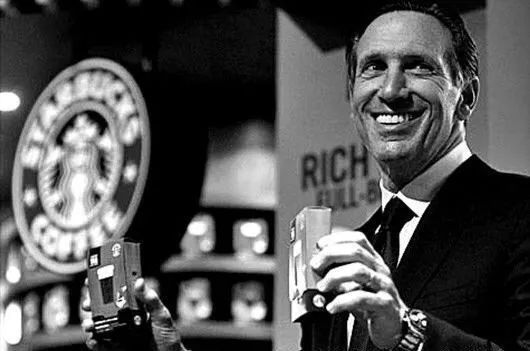
Howard was born into a poor family in Brooklyn, New York, USA. Only his father could support the family. However, in 1961, his father accidentally broke his ankle at work and lost his financial resources. At that time, Howard's mother was seven months pregnant, and the whole family was in unprecedented difficulties.
To make matters worse, the social situation in the United States at that time was that blue-collar workers who were unable to work and had no higher education were bound to be laid off, with no income and no health insurance. Although Howard knew how hard-working and honest his father was, he could only watch him become an abandoned member of society.
This childhood experience affected Howard's principle of managing Starbucks, he has almost stringent requirements for employee benefits, and almost all employees are entitled to medical benefits.
The fragmentation of the American Dream witnessed by the family at the age of 7 made Howard determined that this must not happen to his employees again.
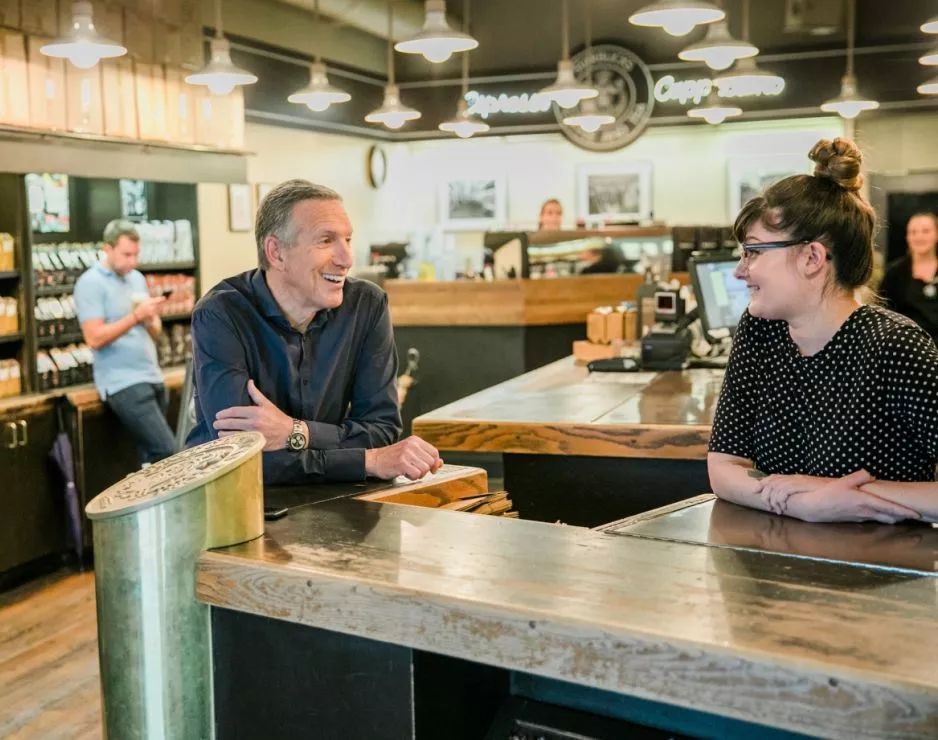
Later, Howard tried numerous part-time jobs to enable himself and his family to move on. In high school, he won a sports scholarship to the University of Northern Michigan for playing football, but after going to college, he chose to give up in the face of the increasing family burden.
Howard, who no longer plays football, devoted all his energies to his studies and went to work in the marketing department of Xerox after graduating from college. Sales is not an easy job, but Howard has a tough personality and has accumulated a lot of marketing experience here.
In three years, Howard not only paid off the loan fees he owed when he was in college, but also successfully entered Pasteur, actively planning the American branch of Hammer Plaster, a 100-brand brand for Baxter. He was also promoted to vice president of Hammer Plaster.
At this time, Howard, only six years after graduation, with his own efforts and persistence to have these, for Howard and his family, it can be regarded as a counterattack.
Just then, the keen Howard caught bits and pieces of information about Starbucks.
/ meet Starbucks to create a legend /
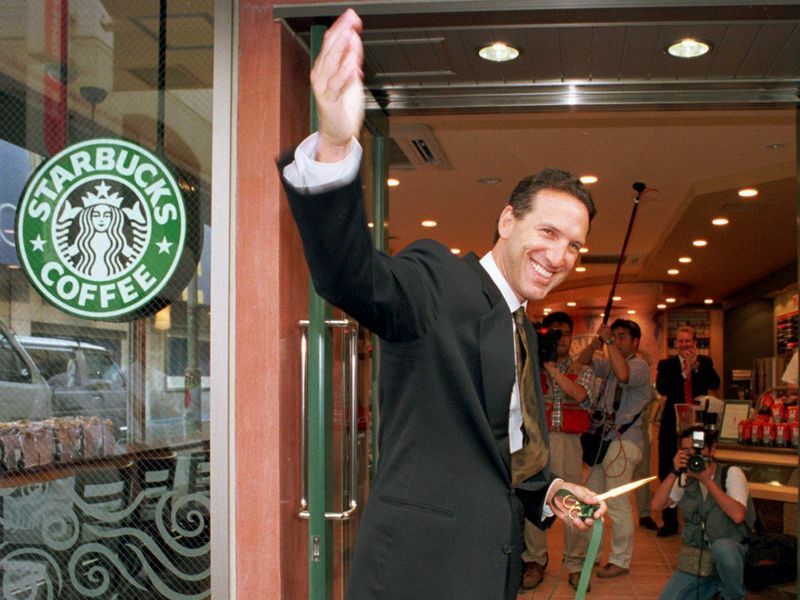
In Tokyo in 1996, Schultz was cutting the ribbon for the opening of the first Starbucks store outside North America.
Howard, who has been working in Hammer Plester, found that a Seattle retailer had ordered a large number of coffee grinders from them. Howard wondered, what can a small retailer do? He decided to investigate for himself to see what was going on.
That's how Howard met Starbucks in Seattle, when Starbucks had only four stores selling boutique coffee to coffee lovers. At that time, the concept of boutique coffee was not yet popular in the United States. People thought that coffee was canned powder, but did not know that it was ground from coffee beans.
But the Starbucks store is like a "temple of coffee worship", filled with coffee beans from all over the world, as well as Hammer Plaster coffee machine, such enthusiasm and courage shocked Howard.
A year later, Howard joined Starbucks in an incomprehensible voice and became director of retail marketing.
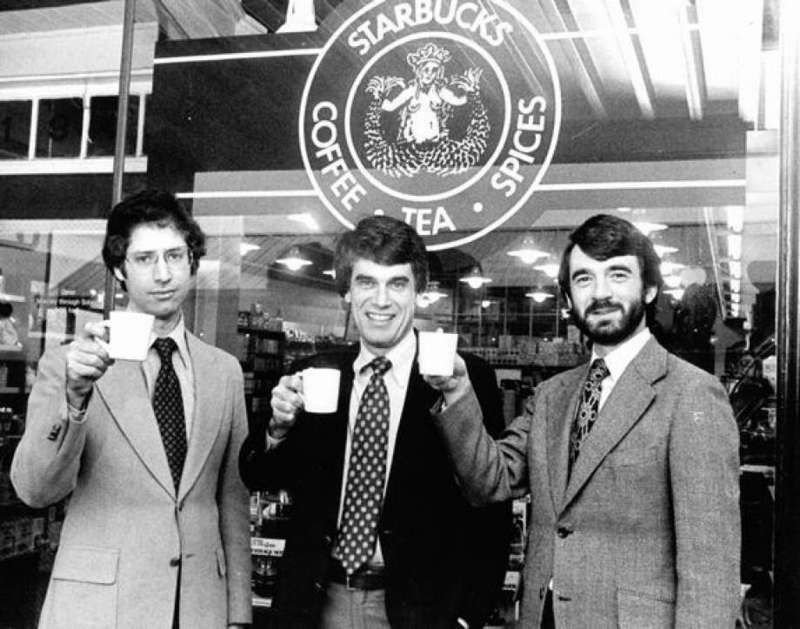
Three founders of Starbucks: Zev Siegl, Jerry Baldwin and Gordon Bowker
While Hammer Plaster's job was seen by others as good enough, Starbucks was unknown at the time, but Howard spent a year persuading Starbucks founders to hire him.
In fact, Howard's idea is very simple, to do something unique, and then really control the fate in their own hands.
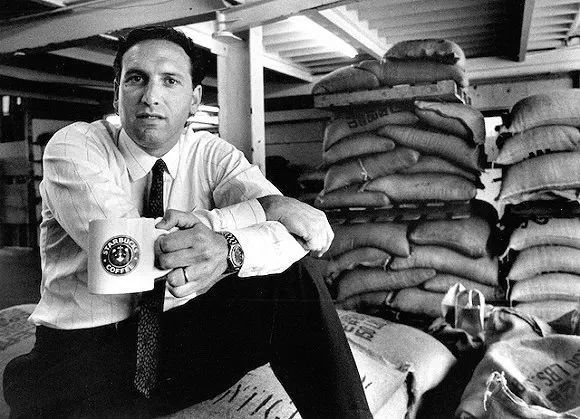
By chance, Howard was sent by the company to Milan to participate in the international household goods exhibition. While hanging out in Milan, Howard found that the coffee tavern here was very different from what he saw in the United States.
There is a close relationship between the host and the guest, and the owner of the coffee shop can even say what kind of coffee the guests often drink. This kind of intimate experience makes Howard realize that coffee can help build such an intimate relationship between people.
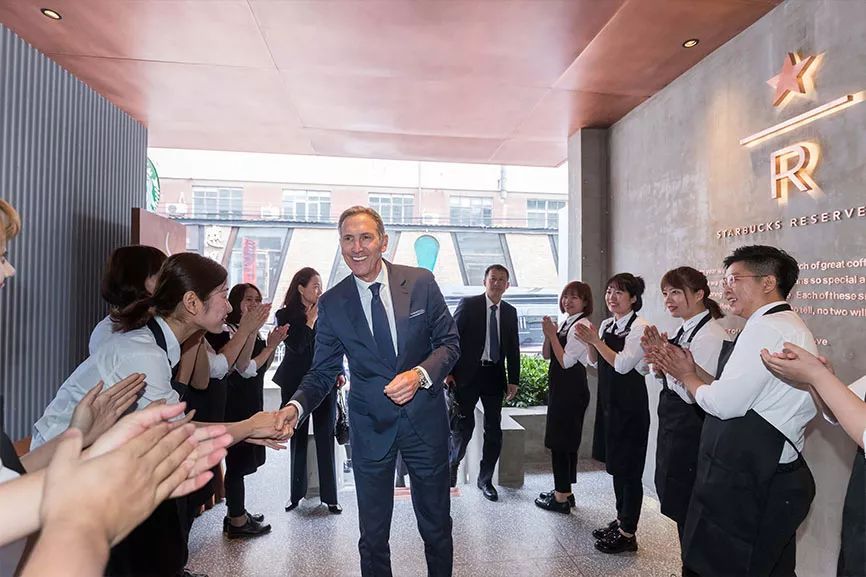
After returning to the United States, in 1985, Howard proposed to several Starbucks founders to change the current Starbucks business model to a social model like an Italian cafe, rather than a simple business model. Howard just couldn't convince them for a long time.
But Howard was reluctant to give up, leaving Starbucks temporarily in 1986 to set up his own coffee brand, Il Giornale.
With his own coffee brand, Howard focused on putting the concept of social scene into practice on Il Giornale, and a year later, the founder of Starbucks approached Howard and asked him to buy Starbucks.
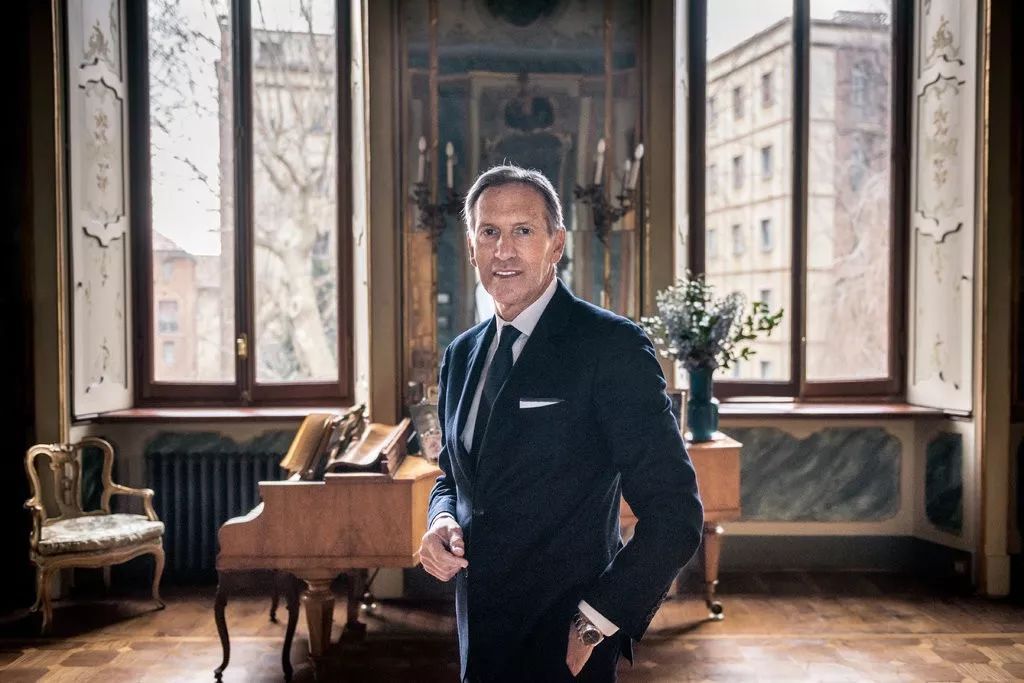
At that time, Howard could not do this with his own economic strength, so he went around to raise money, and he mentioned it in his book Perfusion with all his heart:
In order to raise money, I talked to 242 people during the year but was rejected by 217 people. It's frustrating to hear a lot of voices telling you why your ideas are not worth investing in, and it's a period of great damage to your self-esteem.
But Howard's tenacity kept him going, and in 1987, he raised enough money to buy Starbucks, which had six stores at the time, and became the CEO of Starbucks.
Then Howard began to make drastic changes to Starbucks. His social model cafe quickly became popular in the United States, and people never thought that coffee could not only be brought home to drink. You can also get together with other coffee lovers, chat and exchange, and enjoy the fragrant coffee during the period.
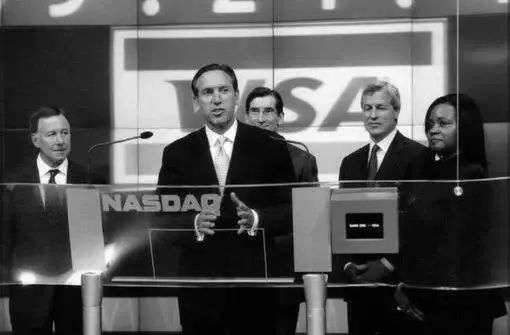
In 1992, the popular Starbucks was successfully listed on Nasdaq. That year, Starbucks had only 165 stores with a turnover of about 93 million US dollars. By 2000, Starbucks had rapidly expanded to 3500 stores worldwide, with an annual turnover of 2.2 billion US dollars.
This is the surprise that Howard brings to Starbucks, and it is also the surprise he brings to his life.
/ the second chapter of life /
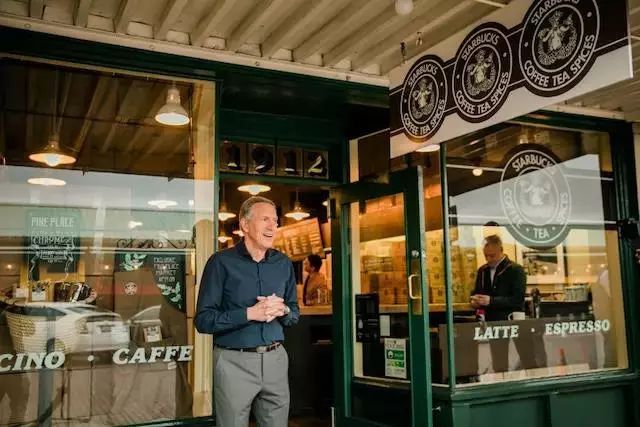
Someone will ask Howard in the interview, what is the secret of success? Perhaps for Howard, the greatest wealth lies in life experience.
Everywhere I go, everything I do, I try to be curious about the world, about my surroundings, about what I have learned from different experiences and different people. I will be surprised by what I have learned.
Because of this, when Starbucks suffered an unprecedented corporate crisis in 2008, Howard, who had stepped down as CEO for eight years, returned boldly, temporarily closing 7100 stores in the United States, using the suspension time to re-train baristas on how to make perfect espresso, and resolutely cut some product lines.
A few years later, by 2010, Starbucks' profit had risen from $315 million to $935 million.
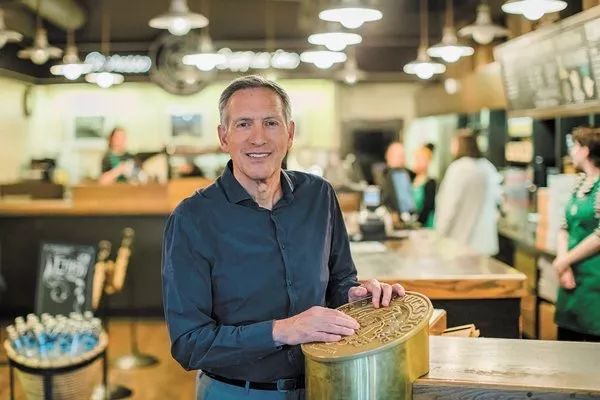
Although Starbucks is a world-famous multinational company, its image among employees is not superior. This is also Howard's business philosophy all the time, employees should not be just employees, but should be the partners of the enterprise and its operators.
In 2016, Howard raised salaries for more than 150000 of Starbucks employees in the United States by about 5 percent, while strengthening other employee benefits, including health insurance and accident insurance, which made Starbucks well received by workers in the service industry. after all, major companies are also increasingly competitive in the labor force.
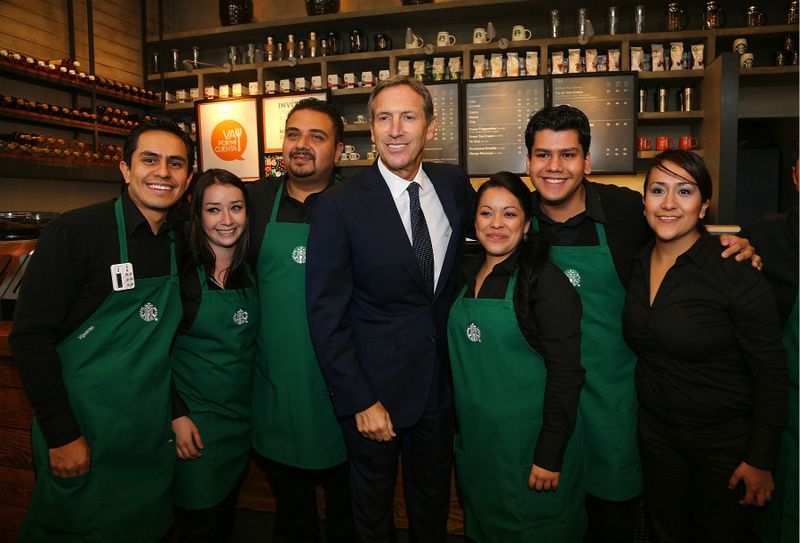
However, there has just been a racial discrimination incident at Starbucks in April, and some people say that this may not be the best time for Howard to leave Starbucks, but perhaps for Howard himself, there is no best or worst concept.
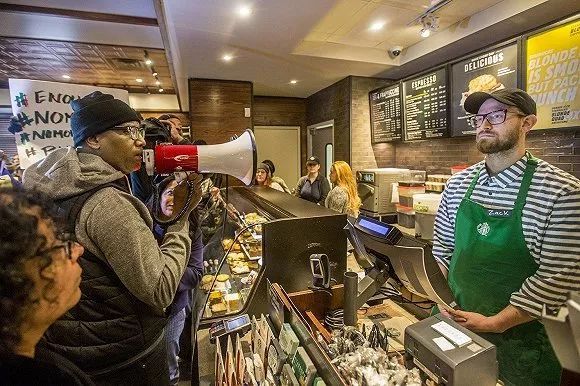
Howard also said in an interview with the New York Times that he has indeed been concerned about the growing division within the country and is quite worried about the international situation of the United States. He also realized that if he didn't leave Starbucks, he would never be able to get to the second chapter of his life.
Although Howard himself never made it clear that he would enter politics, he did say that there were many considerations for finding a way to give back to society and the country, among which public service might be a good choice.
Because of Howard's own life experience and management of Starbucks, many people are looking forward to what he will do if he gets involved in politics. After all, Starbucks has a clear position on sensitive issues such as gay equality, race relations and gun control. Howard himself said that Starbucks really achieved a "delicate balance between profit and conscience." "
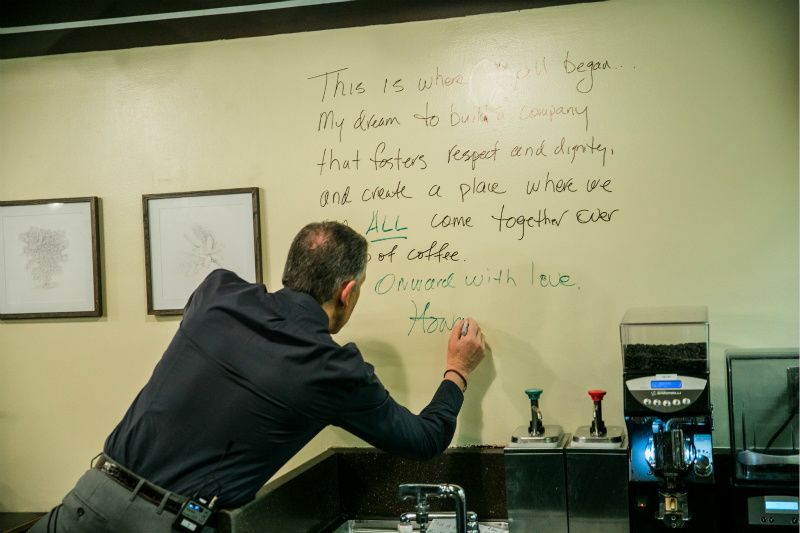
Schultz left a message on the wall of the first Starbucks: "this is where the dream begins."
It is hoped that this kind of humanity in the business community will not be diluted with the departure of Howard.
Father Xing, I still want to pick you for many years.
Edit. Owen | photo. Google, Starbucks
Important Notice :
前街咖啡 FrontStreet Coffee has moved to new addredd:
FrontStreet Coffee Address: 315,Donghua East Road,GuangZhou
Tel:020 38364473
- Prev

What is the new summer product of Starbucks in Taiwan-"honey" coffee pork strips?
Professional coffee knowledge exchange more coffee bean information please follow the coffee workshop (Wechat official account cafe_style) Starbucks summer products will go on sale on June 13, this year the tropical beak and palm tree as totems, launch a series of goods, such as cold water cup, styling kettle, double mug, enamel cup, as well as strawberry, watermelon ice cup key ring, bear pendant and so on.
- Next

How about the left aristocrat-Laos Coffee planting History and Variety introduction of Laos Coffee?
Professional coffee knowledge exchange more coffee bean information please follow the coffee workshop (Wechat official account cafe_style) Laos coffee produced to Laos, before the emergence of European coffee companies in Taiwan, Lao coffee rarely appeared in the raw bean trading system. However, the coffee culture in Laos also began before World War II. In 1927, 90% of the output of the Borofen volcano in Laos was exported to
Related
- What documents do you need to go through to open a coffee shop? coffee shop coffee shop certificate processing process
- How to purchase Coffee beans in small Cafe how to choose a suitable supplier for domestic Coffee supply Company
- How to drink Starbucks Fragrance White Coffee? how to make Australian White Coffee? what Italian coffee beans are recommended?
- The Story of Flora Coffee: the name of Flora Coffee Bean and the implication of the Flowers on Florna Coffee
- How much does a cup of coffee cost? How much is the profit of a cup of coffee? What is the profit of the coffee shop in a year?
- Yunnan small Coffee, known as "fragrant Coffee", introduces the characteristics of Alpine Arabica Coffee producing areas in Yunnan, China
- 2023 latest Starbucks full menu price list how much is a cup of Starbucks coffee what is better to drink the most popular hot and cold drinks recommended
- Starbucks different kinds of Coffee Price list Starbucks menu 2023 Top Ten Best drinks in Starbucks
- Starbucks Spring praise Comprehensive matching Coffee Bean theme Story Packaging implication and taste description
- The cost of a cup of coffee latte American coffee cost price and selling price

